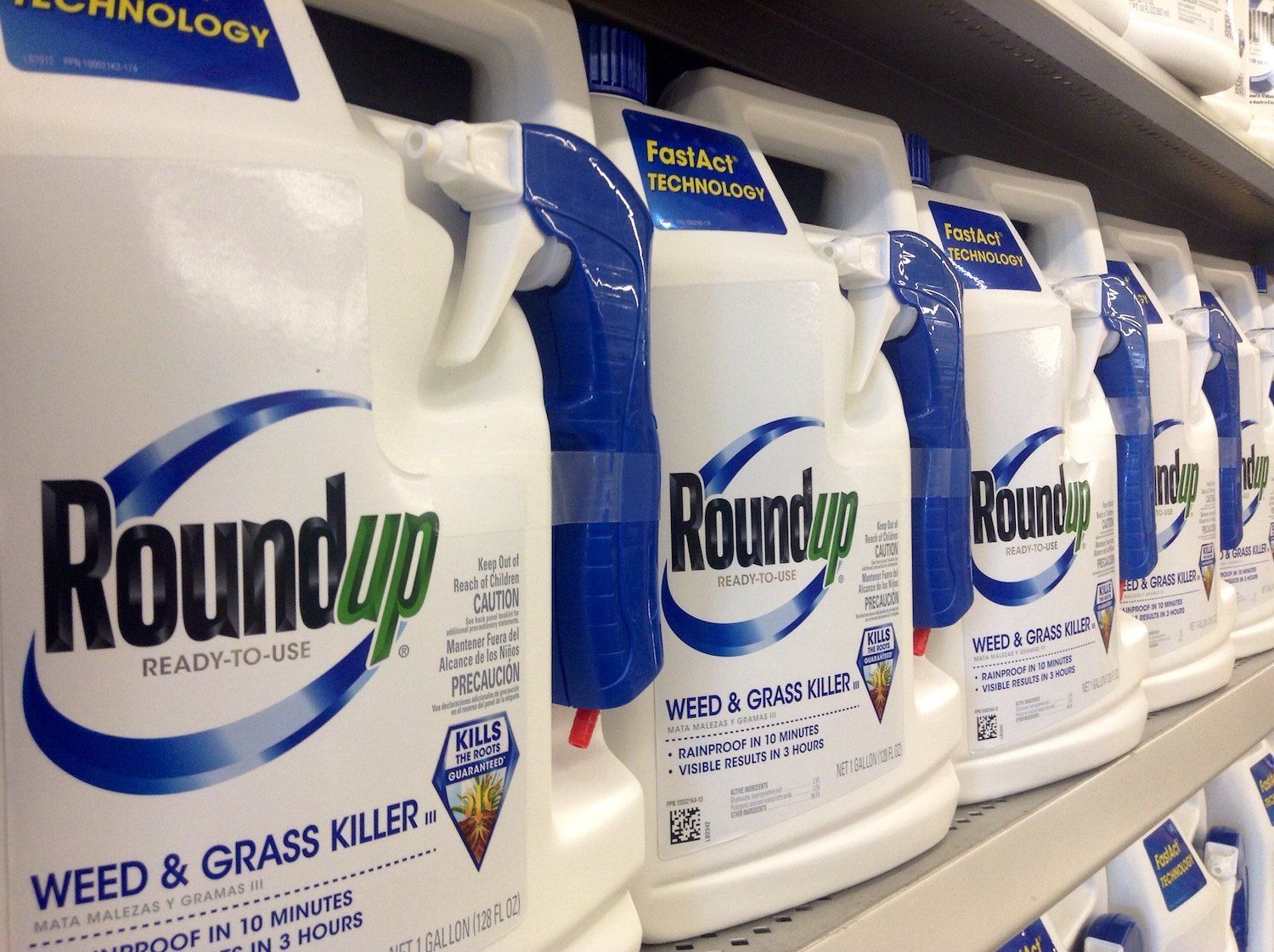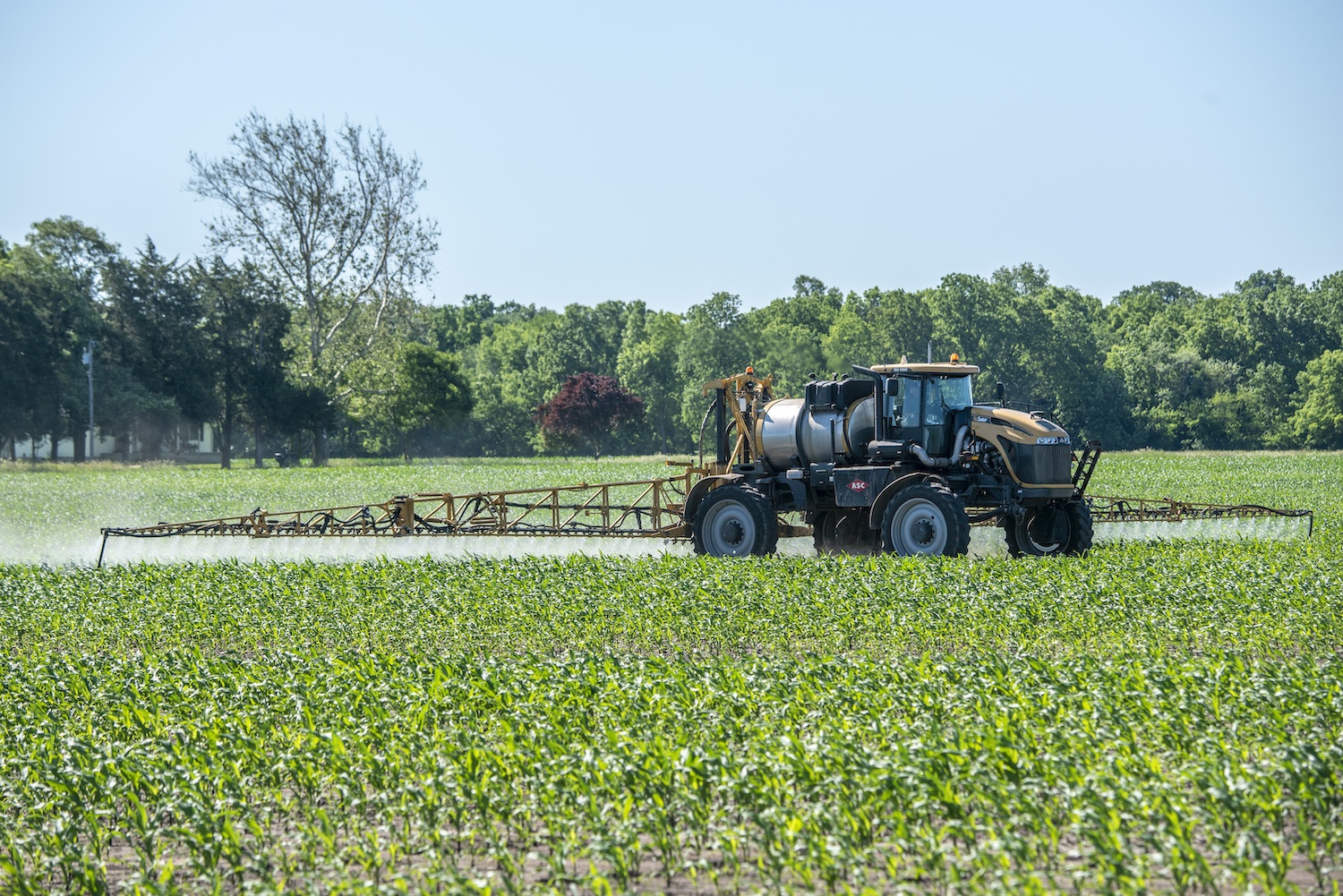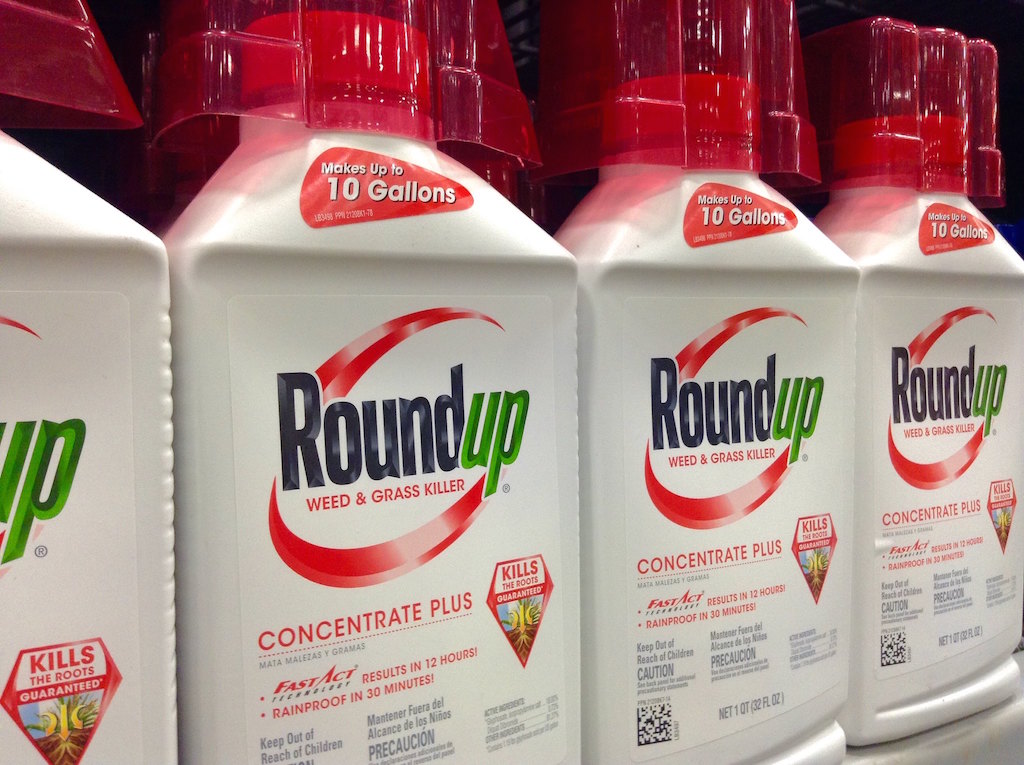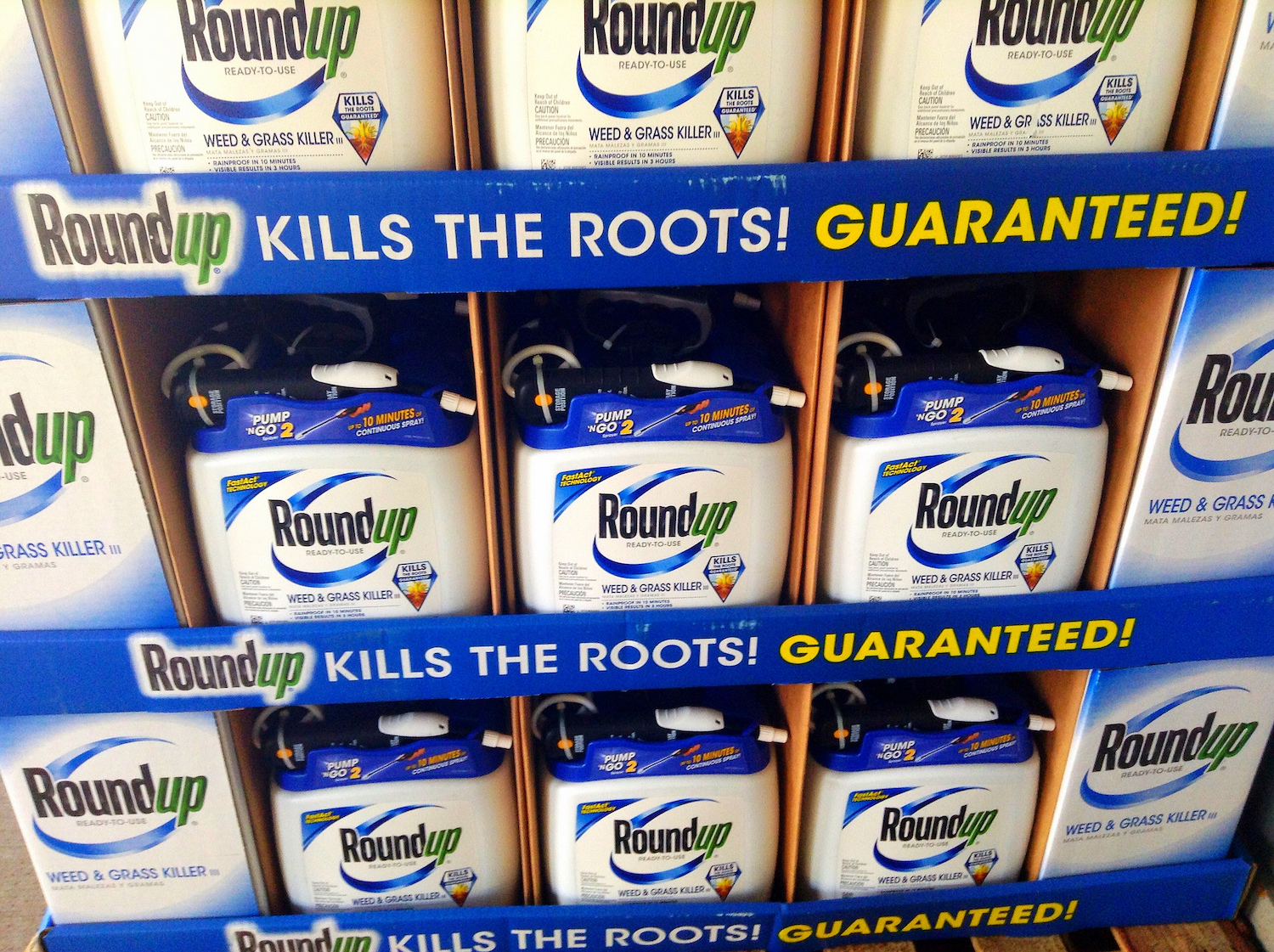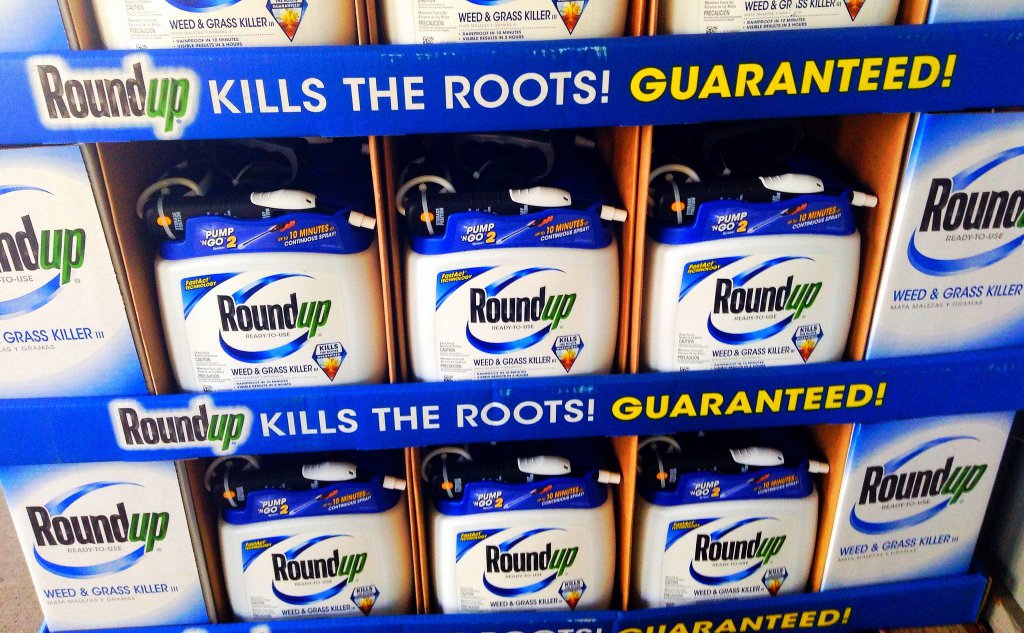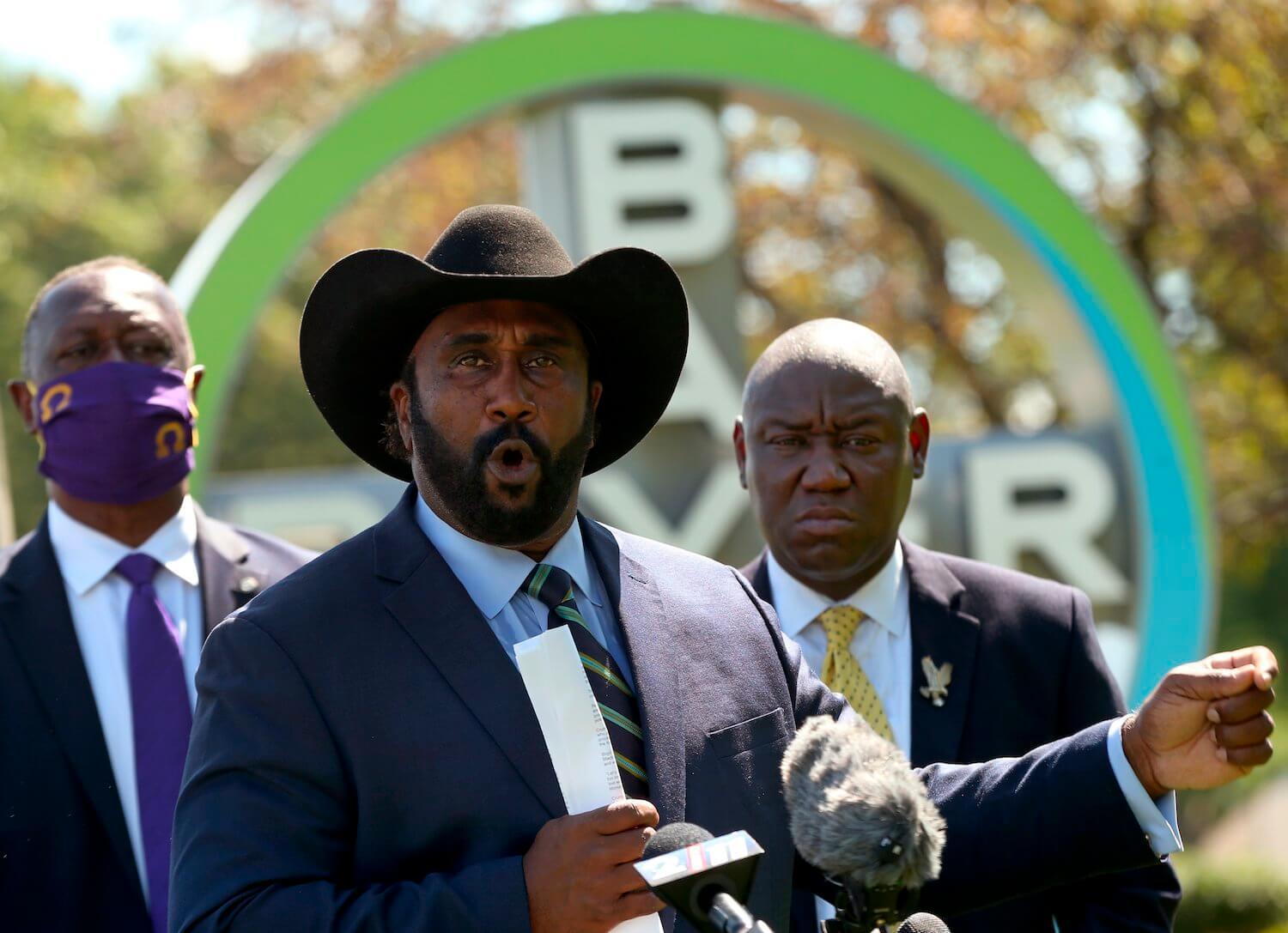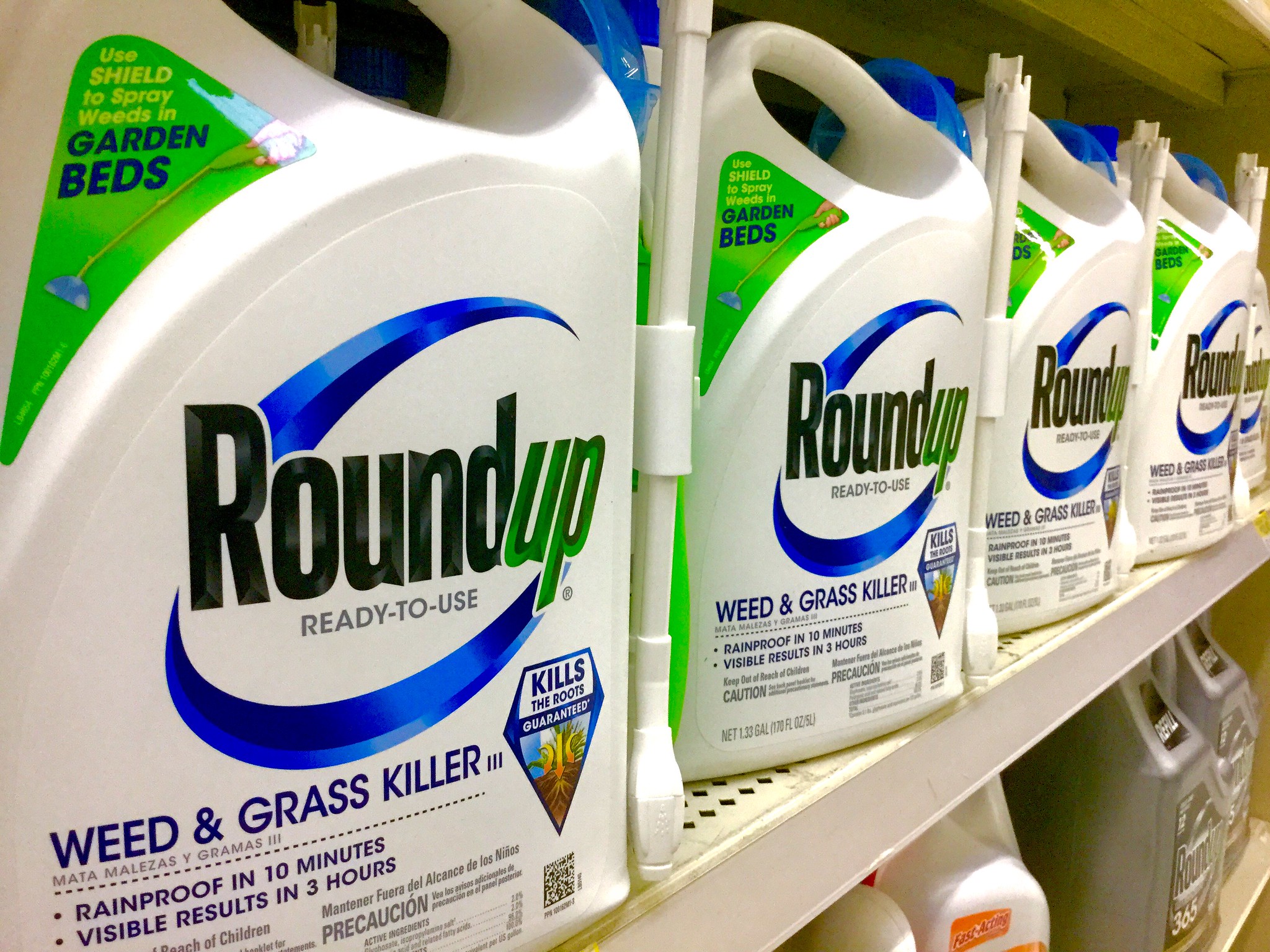The company has lost several significant lawsuits from plaintiffs who alleged glyphosate gave them cancer. The new decision is an attempt to minimize future liability.
Agribusiness giant Bayer announced on Thursday that it would phase out the sale of glyphosate-based products—including the popular herbicide Roundup—for residential use starting in 2023. The decision is intended to reduce future lawsuits related to the safety of the herbicide;glyphosate-based products will remain available for agricultural use.
“This move is being made exclusively to manage litigation risk and not because of any safety concerns,” the company said in a press release.
Bayer acquired Roundup manufacturer Monsanto in 2018. Over the past few years, it has faced approximately 125,000 claims, which includes filed and unfiled lawsuits, from landscapers, home gardeners, and farmers, alleging that glyphosate in Roundup caused them to develop non-Hodgkin lymphoma and other cancers. The company has settled all but 30,000 of these claims. However, in many cases, plaintiffs have alleged that they developed cancer up to 15 years after exposure to glyphosate, meaning that Bayer can expect to face litigation for more than a decade after it pulls the ingredient from the residential market.
While glyphosate products will still be available for agricultural use, Bayer said that “the vast majority of claims” come from people who use it for lawn and home gardening purposes.
Three lawsuits so far have gone to trial, each dealing a blow to the agrochemical giant: In August 2018, a California superior court jury found the company liable for a former school groundskeeper’s terminal cancer; in March 2019, a U.S. District Court jury found the company caused cancer in Santa Rosa resident Edwin Hardeman; and in May 2019, another California superior court found that the company was responsible for a couple’s non-Hodgkin’s lymphoma.
Bayer maintains that glyphosate is not carcinogenic, a position that is backed by the U.S. Environmental Protection Agency (EPA). The agency’s assessment is that “there are no risks to public health when glyphosate is used in accordance with its current label.” In contrast, the International Agency for Research on Cancer (IARC), a subagency of the World Health Organization, has determined that glyphosate is “probably carcinogenic” to humans—an assessment that California uses to determine which substances are covered by Proposition 65 and, thus, require cancer warning labels.
In Thursday’s announcement, Bayer also laid out its plans for future Roundup litigation. In August, the company will petition the Supreme Court to review the Hardeman case, in which a jury found the company failed to warn residential users about glyphosate’s cancer risk. The company argues that it can not market Roundup with a cancer warning label, because federal law preempts state warning requirements.
“Obtaining a favorable decision by the United States Supreme Court on a cross-cutting issue like federal preemption which would effectively and largely end the U.S. Roundup litigation,” it said in the release.
The company told shareholders that it would set aside $4.5 billion to resolve any future claims.
It’s not clear, however, whether the Supreme Court will even take up the case. For that reason, the company told shareholders that it would set aside $4.5 billion to resolve any future claims.
“Should the Supreme Court accept the case, we are confident that Mr. Hardeman will prevail,” said attorney Aimee Wagstaff, who is representing Hardeman, in an email to The Counter. On Bayer’s decision to phase out Roundup, Wagstaff said that “removing glyphosate from the residential market is [a] good start.”
Thursday’s announcement suggests that regardless of a Supreme Court ruling in Bayer’s favor, ongoing Roundup lawsuits have made the product a financial and legal headache that the company wants to put to bed. While glyphosate products will still be available for agricultural use, Bayer said that “the vast majority of claims” come from people who use it for lawn and home gardening purposes.
“This action largely eliminates the primary source of future claims,” it said in the release. In 2023, Bayer will begin to replace glyphosate with new ingredients that are still waiting for EPA review.
